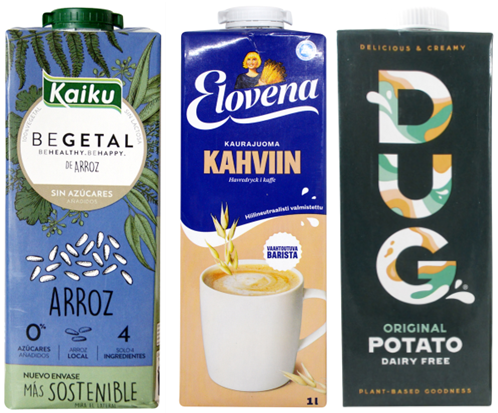Instead attention has been on the health benefits of such products, such as low fat and lactose free. Meanwhile, it is usually only implied that these products may be more sustainable, by using terms such as plant-based or vegan. This focus on health is perhaps well-placed, given that a recent consumer survey by Innova shows that 43% of Europeans consume non-dairy milks because they’re healthy, with only 27% doing so for environmental/ethical reasons. However, Innova’s Trends Survey 2021 showed that globally almost half of the consumers agree that plant-based alternatives are better for the environment. Further data from the same survey reveals that over half of consumers globally say that sustainability is a very or extremely important value when it comes to their diet. These facts suggest that much more attention should be focused on the sustainability benefits of their dairy alternative drinks.
There has been some movement in the ethical positioning of dairy alternative drinks in Europe, but many of these claims relate to the packaging or the company itself, rather than the intrinsic sustainability benefits of plant-based drinks. Examples include the use of plant-based packaging, such as “plastic” lids made with sugar cane as used in Kaiku Begetal De Arroz (rice drink), launched in Portugal in May 2022. Finnish company Elovena, who launched Kaurajuoma Kahviin (oat drink for coffee) in February 2022, highlighted that it is manufactured using carbon neutral energy. Both of these companies could have emphasized that their products are made with sustainable plant ingredients alongside the other messaging about packaging and production, but have chosen not to.

Kaiku Begetal De Arroz: Rice Drink; Elovena Kaurajuoma Kahviin: Oat Drink For Coffee; Dug Original Dairy Free Potato Drink
However, a new product launched in Europe last year may sway companies to include more messaging about the product itself. DUG, the first potato-based dairy alternative drink, has been launched in Sweden (where it was developed), the UK and Ireland by Veg of Lund, and has put sustainability at the heart of its marketing and on-pack messaging. The cartons state that DUG Original “uses ¼ climate footprint of regular milk”. It also compares its sustainability profile to other popular dairy alternative drinks, stating that “potatoes use 56 x less water than almonds” and “are twice as land efficient than growing oats”. This positioning – not only comparing itself sustainably to dairy milk but also other dairy alternative drinks – shows the strength of competition in the category. Every type of dairy alternative drink needs to stand on its own two feet. A strong sustainability message is another way for such products to be one up on the competition.
“Dairy Alternative Drinks: Europe” is a new report from Innova Market Insights, which brings together market sizes, company analysis and a review of new product trends and activity to demonstrate the latest changes and suggest where future opportunities can be found.